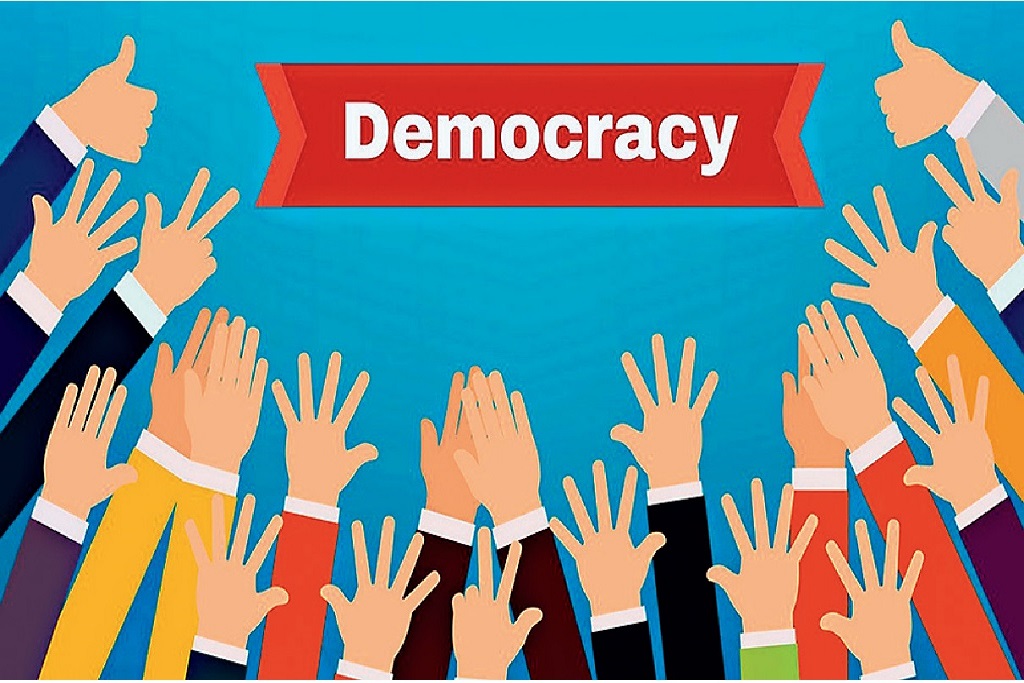Faraan Zionist Research Base; The formation of Israel was based on Judaism. Judaism as a nation and as a religion was the basis of Israel’s political system. However, the existence of other cultures and religions (the Muslim Arabs) challenged the Jewish state’s idea of whether the Jewish political system could establish democracy in the country or that democracy in Israel will be achieved through secularism (non-interference of religion in the political system) so that all the ethnic groups and religions can participate in the Israeli political system. [1]
Does the Jewish nature of Israel undermine its democracy?
Israel was formed as a Jewish state and religion was the basis of its political system. Nonetheless, the democratic and Jewish state is a kind of paradoxical and contradictory one. In his book, ‘A Jewish and Democratic State: Does the Jewish nature of Israel undermine its democracy?’ Gözde Demiroğlu, has explained this contradiction well. [2]
In this book, the constitutional identity of Israel as a Jewish and democratic state is questioned and these two concepts are examined as contradictory features in the constitutional identity of Israel.
The purpose of this book is to facilitate discussions that ask whether the extent of Israel’s Jewish identity undermines its democracy. The author examines the various forms of Zionism as well as the various forms of democracy, and by analyzing the Israeli law, determines Israel’s proportionate position on this scale.
The analysis of the Jewish character of Israel examines the historical context as well as how the various forms of Zionism affect the idea of Israel, and the religious influence of the state in how it affects the lives of the Israeli Jewish citizens. By examining different types of democracy (from the weak to the rich), the author shows that Israel is far from these criteria.
The book’s main argument is that Israel cannot be a Jewish state and meet the democratic standard it has set for itself.
The Jewish identity is rooted in the core of Israel
In recognizing Israel as a Jewish and democratic state, one will dominate the other. At present, the Jewish principles are predominant; this is because the Jewish identity is rooted in the core of Israel.
Many laws indicate this matter by giving priority to the Jews. Most of the government’s interests are in the interests of the Jews, not the civil interests. It therefore does not equate the non-Jews with their Jewish counterparts.
What weakens the Israeli democracy is the fact that the return law, as well as other legal provisions (such as marriage restrictions between the Israeli-Palestinian population and the Palestinians living in the occupied territories to prevent the right of return), have prevented the Jewish population from declining.
The development of settlements has led to the expansion and strengthening of the Jews and the displacement of other groups. Although Israel has many reasons to protect the Jewish population, it is not a reason for the other citizens to be in an unequal position. This book proves that Israel is Jewish, showing beyond doubt that Israel cannot be a Western-style democracy.
The Definition of Israel
What does it mean to define Israel as a Jewish and democratic country? How can this definition affect the constitution? How does this play a role in the daily lives of the people of Israel? In his book, ‘The Dynamics of Constitutional Deprivation: Israel as a Jewish and Democratic State’, Mazen Marseille seeks to answer these questions.
This book provides a detailed review of the implications of defining Israel as a Jewish and democratic state, and discusses its implications for the internal order of government, the functioning of the law, and the ways in which it is used to justify, protect, and reconstruct certain features of the Israeli constitution.
With a socio-legal approach, this book offers a new perspective on the definition of Judaism and democracy based on the view and principles of the constitution. The author shows how this definition is deeply embedded in the structure of the constitution and works as a law in a way that concentrates political power in its own hands and excludes the Jewish and Palestinian Arab citizens in Israel from the political process.
Israel has no democratic basis
This book describes Israel’s character, its connection with the constitutional law, and its impact on the society, which directly and indirectly discriminates against the Palestinian citizens who pass through that law. The author illustrates the impact of Israeli demographic concerns on the constitution, which has led to the opposite effect of immigration law on the Jews and Palestinians, leading to injustice.
Israel has no democratic basis and the law is designed in such a way that the people, especially the Palestinian Arabs, cannot enter the political system, and therefore being democratic in Israel in the sense of constitutional (participation of the people in government, against tyranny) is totally meaningless.
In his book, Israel’s Higher Law: Religion and Liberal Democracy in the Jewish State, [4] Steven Mazie analyzes Israelis’ views on a number of controversial issues, such as symbols of the Jewish state, marriage law, observance of the Sabbath, and funding. Religious education reflects the views of Israeli citizens to explain the relationship between liberal democracy and religion.
The author highlights the gap between the Israeli and American perceptions of the separation of religion and country (religion and nationality, religion and democracy) and the gap between the views of the Jewish and Arab citizens in the formation of the religious state of Israel. He discusses the secular Jews in Tel Aviv and Arab citizens in Jalil and Hasidim in Maya Sharif on topics such as the marriage law, symbols of the Jewish Israeli state, exemption from military service for orthodox and orthodox people, and concludes his arguments on liberal democracy and Judaism.
Israel under siege by an ever-changing set of threats
Of course, Israel is moving towards a secular country where religion is not the basis of politics, and that means the collapse of Israel. Although Israel is located in one land and one of the most important issues for Israel is the usurpation of the land, what has made this land different is the political and security developments that have taken place there.
Changing views and approaches and the Israeli political system will change the equations. Israel is under siege by an ever-changing set of threats. Nonetheless, what if Israel’s most serious challenge comes from within? There was a time when there was a national consensus in the Israeli society where politics was divided between the left and the right, but its people were generally secular and liberal. Over the past decade, the country has been divided into tribes that do not have such a common understanding of what it means to be Zionist, let alone Israeli. [5]
To be continued….
Author: Mohsen Muhammadi.
Endnotes:
[1] For more study, please refer to the book, ‘Israel as a Jewish State,’ Michael Brenner, Seymour and Lillian Abensohn, University of Haifa, 2014.
[2]. A Jewish and Democratic State: Does the Jewish nature of Israel undermine its democracy? Gözde Demiroğlu, 2018.
[3]. The Dynamics of Exclusionary Constitutionalism: Israel as a Jewish and Democratic State, Mazen Masri, Hart Publishing, 2017
[4]. Israel’s Higher Law: Religion and Liberal Democracy in the Jewish State, Steven V. Mazie, Lexington Books, 2006.
[5] For more on this, please refer to the book, ‘How Long Will Israel Survive?: The Threat from Within’, Gregg Carlstrom, Oxford University Press, 2017.










